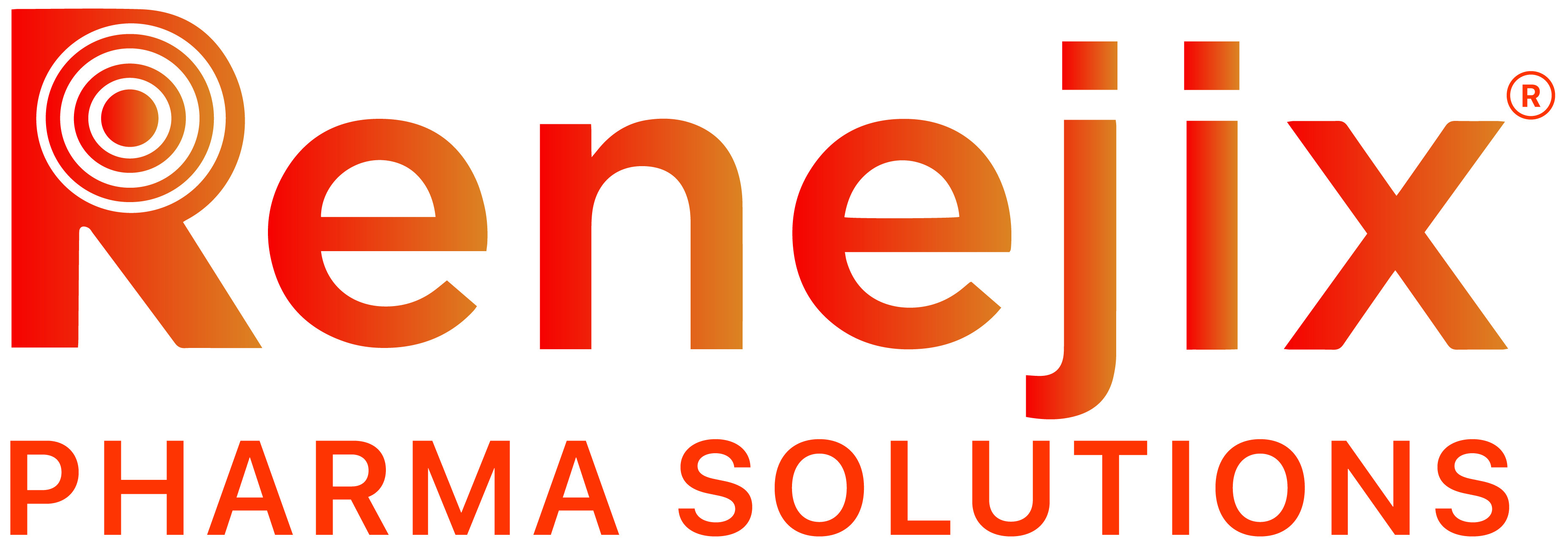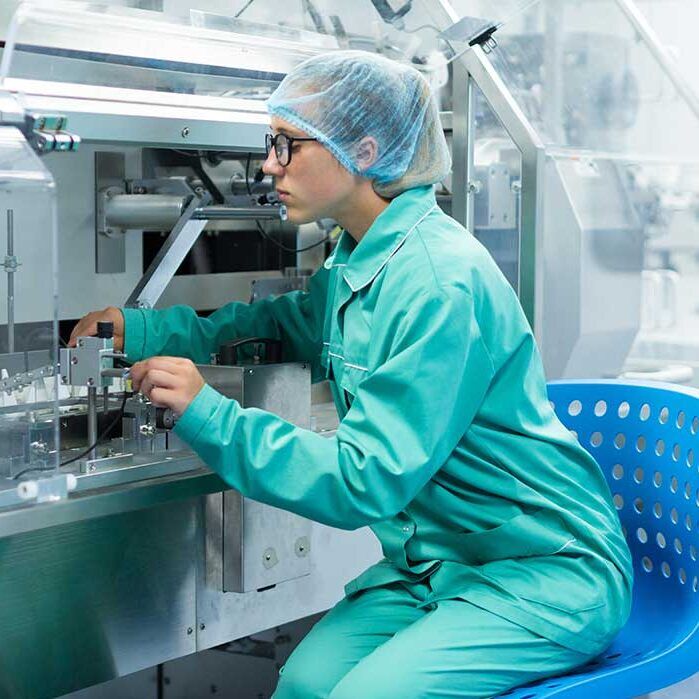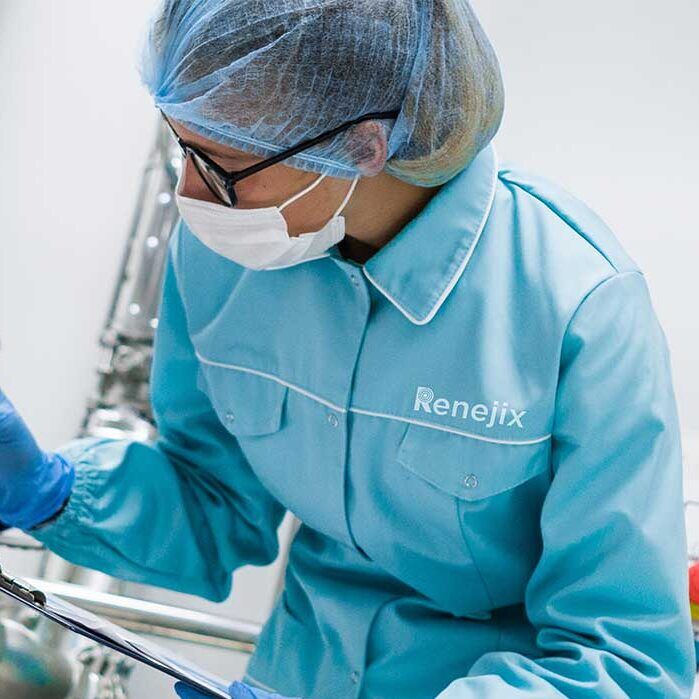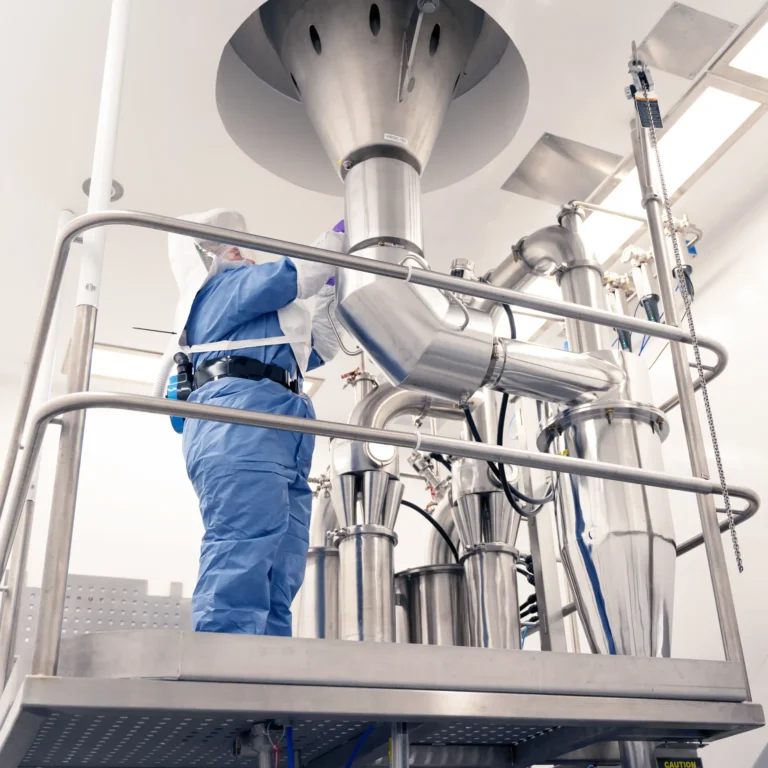Solutions by Phase
PHASED APPROACH: We offer a strategic and phased approach to address the diverse needs of pharmaceutical development across different stages. From early-stage innovation to commercialization, we collaborate with you to select the most suitable solutions and advance your molecule to market with confidence. Our solutions are tailored to seamlessly integrate with your project’s progression, ensuring efficient advancement from early development to commercialization. Backed by a team with over 30 years of experience in formulation development, technology selection, and manufacturing Renejix serves as a strategic partner throughout the entire development process.
EARLY-STAGE SUPPORT: With a focus on innovation and efficiency, Renejix provides comprehensive support during the early stages of drug development. Leveraging our extensive expertise and cutting-edge technologies, we formulate novel approaches and optimizing existing products to enhance bioavailability and achieve controlled release.
MID-PHASE TRANSITION: As your molecule progresses through development, Renejix offers versatile delivery solutions to adapt to evolving requirements and accelerated timelines. We specialize in a wide array of oral delivery technologies, facilitating a smooth transition from early to mid-phase development while maintaining flexibility and speed.
LATE-PHASE READINESS: With a commitment to meeting the demands of fast-track programs, Renejix ensures readiness for late-phase development and commercialization. Our right-scale approach allows for efficient production, whether for large-volume blockbusters or small-batch orphan drugs, positioning your project for success in the final stages of development.
Preclinical Development
Preclinical development is the initial phase where the focus is primarily on understanding the basic safety and efficacy of a compound before it is administered to humans. This phase involves extensive laboratory research including in vitro (cell culture) and in vivo (animal models) studies. Researchers evaluate how the compound affects living organisms, its pharmacological properties, and its safety profile. Key activities in this phase include:
ADME Studies: Assessing how the drug is absorbed, distributed, metabolized, and excreted in the body.
Toxicology Testing: Identifying potential toxic effects and determining safe dosage levels.
Formulation Studies: Developing a stable and effective formulation for the compound.
The data collected from preclinical development helps to establish a basis for the drug’s progression into clinical trials, ensuring that it has a reasonable expectation of safety and efficacy.
clinical Development & Manufacturing
Clinical development commences once a drug has passed the preclinical stage and received regulatory approval to be tested in humans. This phase is subdivided into several stages (Phase 1, Phase 2, Phase 3, and sometimes Phase 4 after drug approval), each designed to answer specific research questions about the drug:
-
Phase 1: Focuses primarily on safety, determining the drug’s most frequent and serious adverse events and the dosage range.
-
Phase 2: Aims to obtain preliminary data on whether the drug works in people who have a certain disease or condition.
-
Phase 3: Involves large-scale testing for safety and effectiveness, comparing the new drug against commonly used treatments or a placebo to assess its overall benefit-risk ratio.
While preclinical development uses non-human systems to estimate the safety and biological activity of a compound, clinical development involves testing the drug in human subjects to validate its safety and therapeutic efficacy comprehensively. Each phase is important and builds upon the findings of the previous stages to ensure the development of safe and effective pharmaceuticals.




